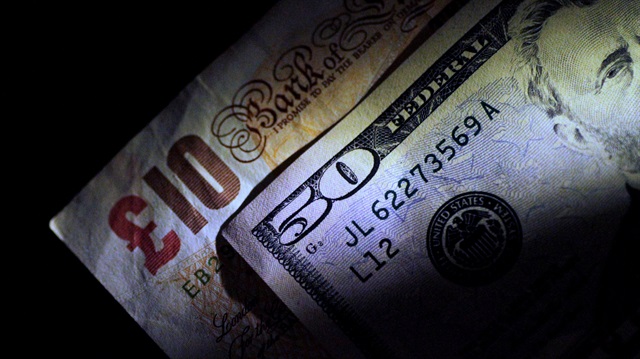
Sterling eased back from its highest levels in nearly two weeks on Wednesday as investors turned their attention back to negotiations for Britain's departure from the European Union.
There have been mixed messages this week on whether British and EU officials will meet an informal October deadline to reach an agreement on how they will structure trade ties following their divorce next year.
Diplomats in Brussels said they expected a delay in finalizing the terms of Britain's exit and could need to hold an emergency summit in November.
But British Brexit minister Dominic Raab said late on Tuesday that he was confident an exit agreement could be reached by an October 18-19 summit of EU leaders.
Dollar weakness after U.S. President Donald Trump's said that he was unhappy with the Federal Reserve for raising interest rates also helped the pound earlier this week.
Following Raab's comments, sterling hit its highest levels against the greenback in 12 days, at $1.2924. The British currency had plunged to nearly 14-month lows last week as worries the UK will crash out of the EU without a trade deal mounted.
By 0807 GMT on Wednesday, sterling was 0.3 percent lower at $1.2871.
The pound was 0.2 percent lower at 89.77 pence per euro.
"One thing is clear: the agreement will have to be reached well before year-end to leave sufficient time for the ratification ahead of the actual Brexit by the end of March 2019," analysts at Commerzbank wrote in a note to clients.
"However, the longer the negotiations drag on for the more the FX market has to fear a no-deal accident, i.e. that the UK will leave the EU without a transition agreement which would entail notably elevated risks premiums for the pound exchange rates."
They also noted British government papers analyzing the possible consequences of a no-deal Brexit that are due to be published this week would be key for sterling's performance over the next few days.
"The inherent willingness of both sides to find a Withdrawal Deal solution should serve as a bit of a backstop to the degree of no-deal Brexit risks priced into the currency," said ING currency strategist Viraj Patel.
"But when it comes to sterling and political risks, it is far too early to signal the all-clear; the biggest test for the pound will be the return of a divided UK parliament from their summer recess and the upcoming Party Conference Season."










